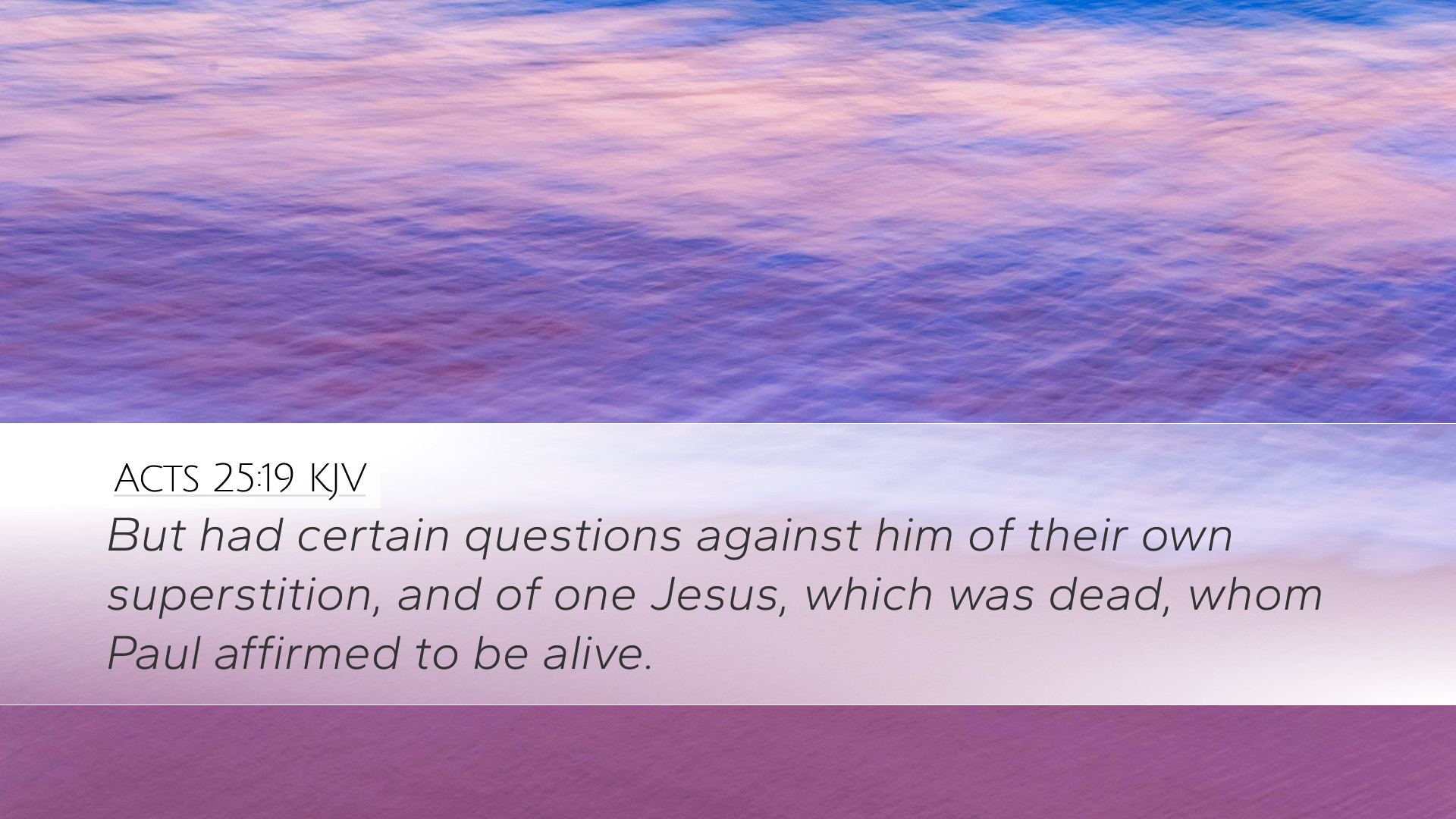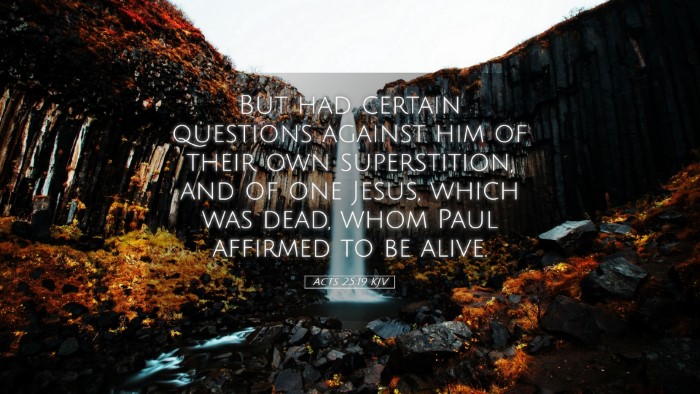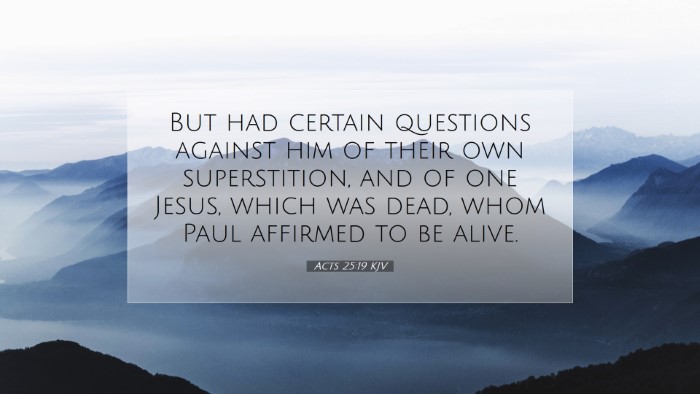Old Testament
Genesis Exodus Leviticus Numbers Deuteronomy Joshua Judges Ruth 1 Samuel 2 Samuel 1 Kings 2 Kings 1 Chronicles 2 Chronicles Ezra Nehemiah Esther Job Psalms Proverbs Ecclesiastes Song of Solomon Isaiah Jeremiah Lamentations Ezekiel Daniel Hosea Joel Amos Obadiah Jonah Micah Nahum Habakkuk Zephaniah Haggai Zechariah MalachiActs 25:19
Acts 25:19 KJV
But had certain questions against him of their own superstition, and of one Jesus, which was dead, whom Paul affirmed to be alive.
Acts 25:19 Bible Commentary
Commentary on Acts 25:19
Acts 25:19 states: "But had certain questions against him of their own superstition, and of one Jesus, which was dead, whom Paul affirmed to be alive."
Introduction to the Verse
This verse represents a pivotal moment in the Apostle Paul's trial before Festus. It encapsulates the spiritual and religious tensions at play and highlights the centrality of the resurrection of Jesus Christ in the early Christian proclamation. The phrase “of their own superstition” indicates the religious context underlying the accusations.
Contextual Analysis
In the previous chapters of Acts, Paul had been seized in Jerusalem and had faced a series of trials. The Jewish leadership sought to eliminate him due to his teachings regarding Jesus and the resurrection. Acts 25 represents the transfer of Paul's case to the Roman governor Festus, who is presented with the complexities of Jewish law versus Roman governance.
Commentary Insights
Matthew Henry's Commentary
Matthew Henry notes that the accusations against Paul stemmed from the religious jealousy faced by the Jewish leaders. He emphasizes that the disputes were not about any real crime but rather centered on differing theological beliefs regarding Jesus Christ. The term "superstition" reflects the perception the Romans had of the Jewish beliefs, which were seen as strange or unconventional. Paul’s affirmation of Jesus’ resurrection presents a core theme of Christian doctrine that Paul defended vigorously.
Albert Barnes' Notes
Albert Barnes elaborates on the term "questions of their own superstition," suggesting it referred to the doctrinal disagreements concerning Jewish laws and the resurrection of Christ. Barnes highlights that such doctrinal disputes were not seen in the light of Roman law and that Festus was perplexed about the reasons for Paul’s imprisonment. He discerns that Paul’s defense was not merely about his conduct, but about the doctrinal truth regarding Jesus Christ, whom he proclaimed as alive.
Adam Clarke's Commentary
Adam Clarke delves into the implications of the term "Jesus, which was dead." Clarke underscores Paul’s bold assertion, affirming that Jesus, once crucified, was raised from the dead. This central claim becomes a point of contention not merely in a judicial context, but also in the spiritual realm where the very essence of faith is rooted. Clarke points out that the resurrection is the cornerstone of Christian belief, signifying victory over death and a hope for eternal life for believers.
Theological Implications
This verse holds significant theological implications. The accusation based on "superstition" reveals the stark contrast between the early Christian faith and Jewish traditionalism. The mention of Jesus implies a shift from the law to grace and faith in the risen Savior. This confrontation between faith in Christ and the system of the law governs the entirety of Paul's mission, representing the broader conflict between the gospel and established religious norms.
Application for Believers
- Courage in the Face of Opposition: Just as Paul stood firm in proclaiming Jesus amid accusations, believers today are encouraged to stand for their faith boldly.
- The Centrality of the Resurrection: The resurrection is the foundation for Christian hope. Understanding its importance can deepen one's faith and witness.
- Engaging Culture with Truth: Being prepared to answer the perplexities of our time with clarity and conviction, much like Paul, is essential for every believer.
Conclusion
Acts 25:19 serves as a profound reminder of the early church's reliance on the foundational truths of the faith, especially the resurrection. As pastors, students, and theologians engage with this text, they are called to reflect on the importance of defending the gospel’s tenets against misunderstanding and false accusations. The insights from Matthew Henry, Albert Barnes, and Adam Clarke reveal the depth of this passage, inviting a continued exploration of its implications for faith and practice today.


